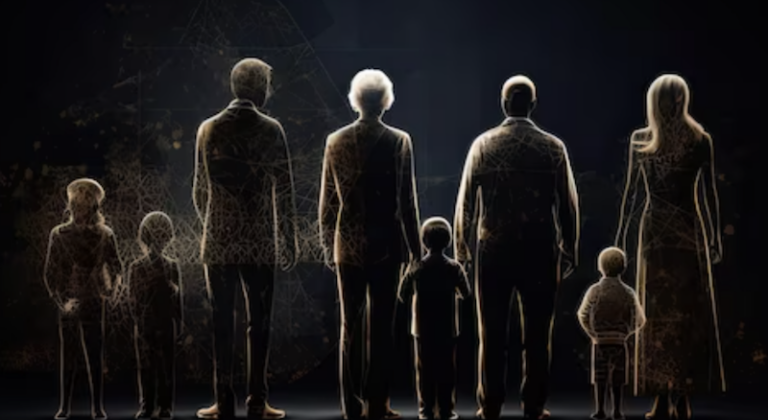The Perfect Storm - 4 Factors shaping Gen Z and their Impact on the Business World
Understanding the factors that shape each generation is crucial to helping business leaders and HR teams adapt their strategies to the evolving workforce. Today’s youngest employees, Gen Z, have been molded by a “perfect storm” of four key factors that have fundamentally changed who they are and how they interact with the world. Let’s delve into these factors and discuss their implications for businesses seeking to engage, manage, and nurture Gen Z talent.
Technology: An invisible Influencer
Gen Z, born between 1997 and 2012, has never known a world without the internet, smartphones, and social media. The rapid advancement of technology has had a significant impact on how they interact with the world and with each other. As I mention in, “Aliens Among Us: Ten Surprising Truths About Gen Z,” each generation has been shaped by a major technological innovation, which has influenced their behaviors, interactions, and lifestyles.
Implications for business leaders and HR teams:
Embrace technology. Offer training in soft skills.
Incorporate digital tools and platforms to enhance communication, collaboration, and productivity. Provide opportunities for Gen Z employees to develop strong interpersonal and communication skills through workshops, mentorship programs, and team-building activities.
World News: “Mean World Syndrome”
“Mean World Syndrome”, a term coined by George Gerbner, describes the phenomenon of people perceiving the world as more dangerous than it actually is due to their exposure to violent or negative news. Gen Z’s constant connection to the internet has given them access to world news in real-time, shaping their perception of the world and wiring them differently to previous generations.
Implications for business leaders and HR teams:
Foster a positive work environment. Encourage open dialogue.
Create a supportive and inclusive atmosphere to counteract the negative effects of “Mean World Syndrome.” Promote open discussions about world events and news, helping employees understand different perspectives and develop critical thinking skills.
Social Media: A Double-Edged Sword
Social media has been a powerful tool for Gen Z, allowing them to communicate, interact, and share information like never before. However, it also produces some negative results, such as the potential for addiction, cyberbullying, and mental health issues.
Implications for business leaders and HR teams:
Leverage Social Media for Engagement. Promote healthy social media use.
Use social media platforms to engage with employees, share company news, and foster a sense of community. Encourage employees to set boundaries and take breaks from social media to maintain their mental well-being.
Leadership and Parenting: The Epidemic of Under-Management
Gen Z has grown up with a significant shift in parenting styles, characterized by under-management and “free-range” parenting. This has resulted in a generation that values independence and autonomy but may also struggle with certain aspects of traditional leadership and management.
Implications for business leaders and HR teams:
Adopt a coaching mindset. Encourage autonomy.
Emphasize mentorship and coaching rather than traditional top-down management styles.
Provide opportunities for Gen Z employees to take on responsibility and make decisions, fostering their independence and growth.
To Summarize:
The perfect storm of technology, world news, social media, and leadership and parenting styles has shaped Gen Z into a unique generation. Just like in my paint analogy, yellow paint (the perfect storm) gets poured into the blue paint (prior generations) who gradually turn green. What is crucial to understand though, is that Gen Z has always been ‘green paint’, while older generations are gradually becoming green by adapting to the changes brought on by this ‘perfect storm’. By understanding and embracing these cataclysmic forces, business leaders and HR teams can create an environment where Gen Z and other generations can function together. This is what future-proofing your business entails.





